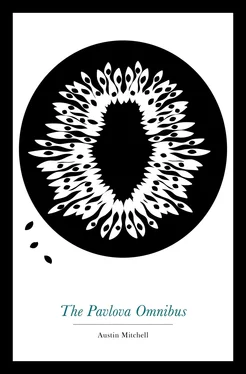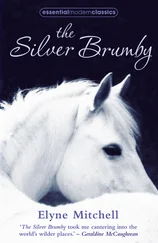Austin Mitchell - The Pavlova Omnibus
Здесь есть возможность читать онлайн «Austin Mitchell - The Pavlova Omnibus» — ознакомительный отрывок электронной книги совершенно бесплатно, а после прочтения отрывка купить полную версию. В некоторых случаях можно слушать аудио, скачать через торрент в формате fb2 и присутствует краткое содержание. Жанр: unrecognised, на английском языке. Описание произведения, (предисловие) а так же отзывы посетителей доступны на портале библиотеки ЛибКат.
- Название:The Pavlova Omnibus
- Автор:
- Жанр:
- Год:неизвестен
- ISBN:нет данных
- Рейтинг книги:5 / 5. Голосов: 1
-
Избранное:Добавить в избранное
- Отзывы:
-
Ваша оценка:
- 100
- 1
- 2
- 3
- 4
- 5
The Pavlova Omnibus: краткое содержание, описание и аннотация
Предлагаем к чтению аннотацию, описание, краткое содержание или предисловие (зависит от того, что написал сам автор книги «The Pavlova Omnibus»). Если вы не нашли необходимую информацию о книге — напишите в комментариях, мы постараемся отыскать её.
The Pavlova Omnibus — читать онлайн ознакомительный отрывок
Ниже представлен текст книги, разбитый по страницам. Система сохранения места последней прочитанной страницы, позволяет с удобством читать онлайн бесплатно книгу «The Pavlova Omnibus», без необходимости каждый раз заново искать на чём Вы остановились. Поставьте закладку, и сможете в любой момент перейти на страницу, на которой закончили чтение.
Интервал:
Закладка:
The population is maintained at a rough balance of one man equivalent to twenty-three ewe equivalents, or people to sheep—but then what’s in a name, as Engelbert Humperdinck would say. This balance makes the humans better off, with the average bloke earning $2,235 at the 1966 census, the average sheep only $6. Unfortunately it upsets a combined chorus of politicians and sex maniacs who want the people to catch up on the sheep by populating or perishing, conveniently forgetting that the strain of reaching the first ten million could produce both eventualities. Yet a population of only three million, scattered over 104,000 square miles, is responsible for most of the national characteristics. God who made them tiny, make them tinier yet.
Small population means an intimate society. You’ll soon begin to think that all New Zealanders know each other or even that they are all interrelated, thanks to some mysterious process of national incest. No one can arrive in a town where he doesn’t have a relative, a friend, or at worst a common acquaintance of his maiden aunt’s. As soon as the weather is out of the way conversations have limitless, or rather three million, prospects for mutual name swapping. The only way you can join in is by memorising a phone book.
A small country is unspecialised. Skills only become complex and compartmentalised in larger countries. British workmen arriving there are baffled to find that they can’t just exercise their traditional skill of screwing on the doorbell—they have to help build the house as well. A uniquely irrelevant British education system trained me to know everything about one British political party from 1815 to 1830, and nothing about anything else. I arrived in New Zealand to find myself lecturing on the whole rich tableau of history from mastodons to Muldoon. Even mastering this wasn’t enough to make the Kiwi grade. Unlike my academic colleagues, I wasn’t able to mend cars, build houses and play rugby—I still had nothing to talk about in the staff commonroom.
Unfortunately because specialists are so thin on the ground New Zealanders become suspicious of them. The all-rounder is preferred. Every year the country’s part-owners pop in from the international pawnbrokers at the IMF to inspect their pledge. Their dire warnings are always disregarded. After all, not one of them has handled a tool, even a screwdriver. In 1967 I did a television documentary attempting to analyse the Kiwi character. The audience was so shocked by my inability to put putty on a window that the brilliance of the argument was completely lost. Lack of practical skills is a form of personal inadequacy: as a perceptive correspondent in the Woman’s Weekly once pointed out, ‘protesters don’t knit socks’. This adoration of the practical even influences the government hierarchy. In America the State Department carries the prestige, in Britain the Treasury. New Zealand esteems only the Ministry of Works whose minister can proclaim, ‘My name is Ozymandias, king of kings: Look on my works ye Mighty, and despair!’ to quote P. B. Allen, the Departmental Demosthenes pleading for a change of name to the Ministry of Good Works.
New Zealand owes much of its national character to the smallness of the population. A mass society is hierarchical and fragmented; a small one is uniform. Mass societies generalise into categories and classes; New Zealand deals in individuals, being small enough to particularise. Mass societies are preoccupied by abstractions and ideas: freedom, class, tyrannny, oppression. The Kiwi personalised society looks at people and their motives. If someone was declaiming about freedom and private enterprise an Englishman would listen. A New Zealander would quickly reduce it all to ‘He’s saying that because his father drank’ or, if acquaintance is more distant, ‘What’s in it for him?’ Continental workers strike against Gaullism, British against trade union legislation. The Kiwis’ nearest approach to a political strike is against increased beer prices. [*]Instead of discussing ideas or grouping people into abstractions such as classes they prefer to gossip about individuals. Their national literature, like their conversation and women’s magazines, is dominated by the ‘funny thing that happened to me’ approach. A Briton would define someone by reference to some category, usually exact social position. The Kiwi does so by reference to his personal characteristics, usually his precise degree of ‘good or bad blokiness’.
The same smallness also makes New Zealand a uniform, egalitarian society. Of course other factors help. There’s no natural diversity. There are twenty-two breeds of sheep here but the humans mostly come from the same stock, are nearly all the same colour, have no deep social divisions and all go to the same schools. Minorities are too small to stand out. There is a small Chinese population but you’ll have to hunt them out in the yellow pages, under G or L. Even the nine per cent who happen to be Maori don’t break the uniformity. They usually segregate themselves in the countryside, in the plastic pas of Rotorua, or in the poorer areas of the cities where no one sees them, though all claim to hear. Only a few young militants have shown any great desire to be exclusive or militant. Most are brown New Zealanders with larger families and different family customs. Their traditional leaders make Uncle Tom look like Eldridge Cleaver.
In any case New Zealand needs the Maori. He is the national fig leaf. The academics can study him, the artists pinch his motifs, and the liberals sympathise with him, even if he doesn’t appear to understand what they are talking about. More important, as long as he’s there a stretch of white suburbia whose attitudes are evocative of a Rhodesia without Africans can pose as multi-racial, racially tolerant and other nice things. The whole process is quite painless. The Maoris are just a large enough proportion to make the rest feel virtuous and not large enough to inconvenience them, unless they happen to live next door which none of those who talk about the Maoris ever do. The concession of equality is nicely self-interested. As long as the Maori has only equal rights and equal treatment, poverty and lack of education will make him incapable of competing effectively. No Maoris, no poor.
Even differences of wealth aren’t really a source of diversity. [**]New Zealanders don’t mind having the doctor in his castle, the patient at his gate, for financial equality is not enshrined in the Kiwi Pantheon. Because doctors are better unionised than wharfies they naturally deserve more: $7,000 a year more on average. Raising sheep is clearly more important than raising children so it’s better paid. Producing beer is more praiseworthy than guzzling it, an act which demands only a reckless courage and a dulled sensitivity. Property also makes perfect. With rocketing values since the war farmers have clearly done well, even if things have got so tough now that some have been compelled to drive Jaguars over four years old. The owners of scrubby gullies near Auckland do even better. The most profitable crop to plant is still septic tanks.
The difference of wealth doesn’t make a class system, because the country is so small. Concentration makes classes. In mass societies the like gather together, developing their own life styles, uniforms, newspapers and magazines, languages. Here Remuera and Fendalton look like a scruffy social hodgepodge compared with uni-class areas in London. The social groups are too scattered to congeal into classes. The British upper class has Fortnum and Masons to themselves. New Zealanders must forage in the Four Square. A New Zealand Tatler and Bystander could survive only by descending to photos of ‘a happy family group exchanging blows at No. 34 State House Road, Grey Lynn’. Think of Vogue, New Zealand. After three thin years it had done features on the upper class (all four of them). Loath to turn to features on fashion among Wattie’s cannery workers, it closed down. No one noticed.
Читать дальшеИнтервал:
Закладка:
Похожие книги на «The Pavlova Omnibus»
Представляем Вашему вниманию похожие книги на «The Pavlova Omnibus» списком для выбора. Мы отобрали схожую по названию и смыслу литературу в надежде предоставить читателям больше вариантов отыскать новые, интересные, ещё непрочитанные произведения.
Обсуждение, отзывы о книге «The Pavlova Omnibus» и просто собственные мнения читателей. Оставьте ваши комментарии, напишите, что Вы думаете о произведении, его смысле или главных героях. Укажите что конкретно понравилось, а что нет, и почему Вы так считаете.












